Currently, the satisfaction evaluation is chiefly performed based on sociological approach which consists in studying the patients’ opinions on various aspects of the medical assistance quality using a questionnaire.
Services quality control is one of the quality management system’s elements, therefore, the greater popularity acquires the system based on the systematic approach to management which allows ensuring the continuous improvement in the functioning of any institution.
Over recent years, the role of sociological polls of patients and medical staff has grown considerably concerning medical assistance quality management [1, 2].
According to the State Program for the Development of Healthcare of the Republic of Kazakhstan ‘Densaulyk’ for 2016-2019, the further development of Primary Health Care provides further actions aimed at developing universal, integrated, socially oriented, affordable and high-quality medical care at primary level. Social orientation of Primary Health Care will be ensured by integrating the work of Primary Health Care, social protection and public health services, the active involvement of primary health care specialists in activities within the framework of intersectoral interaction aimed at ensuring public health [3].
Accordingly, Primary Health Care will be considered as a primary medical and social care service, that includes the provision of comprehensive medical and social services involving psychologists, social workers, nurses, medical assistants, obstetric personnel and supporting staff. Social and psychological support and multi-profile patronage will be provided in cooperation with the social security authorities.
Over the past 20 years, qualitative changes have taken place in the health care system in the world, including, inter alia, the development of the so-called patient-oriented approach based on the principles of respect and orientation to the patient’s individual interests, needs, values, and openness and involvement in the decision-making process regarding the provision of medical care [4].
This approach has several advantages: its use increases patient compliance, succession of treatment is implemented, and, consequently, public health indicators are improved [5, 6]. In addition, patients desire again to request assistance from that medical institution in which a patient-oriented approach is implemented, as well as advising it to friends and relatives, which produces favorable effect on the financial state of a particular medical institution [7]. It should be noted that development of this line is impossible without an appropriate level of quality, and, therefore, the quality of care can be evaluated using an indicator demonstrating the level of patient-oriented approach implementation.
This indicator is the level of satisfaction with medical assistance quality, reflecting the degree of compliance with the expectations, interests, as well as the patient’s needs, his/her ideas as to how a medical institution should function. Due to the widespread introduction of this parameter measuring, it became possible to implement the optimal development of medical institutions in areas that are actually relevant for the population [9, 10].
For patients served in a particular medical institution, the quality of care is determined by the extent it meets their needs and expectations, whether it is timely and how polite and attentive medical staff who provides this assistance. In general, the patient needs the symptoms elimination, and disease prevention or cease. His/her opinion is very important, as patients whose expectations are met, take doctor’s prescriptions more seriously.
In accordance with the implementation of the ‘Comprehensive plan for fighting cancer diseases in the Republic of Kazakhstan for 2018-2022’, approved by the Government of the Republic of Kazakhstan on June 29, 2018 No. 395, monitoring of public awareness of the first signs of cancer and advanced methods of their diagnosis and treatment is underway [8]. A survey of the population is conducted, the questionnaire ‘Evaluation of oncological diseases awareness level’ includes three questions: What do you think, which of these symptoms are characteristic of a malignant tumor? What diagnostic methods can be used to detect cancer? What do you think, what treatments are used in the treatment of cancer?
The total number of monitoring participants was 2 % of the attached population over the age of 18, evenly distributed within a year. Following the results of oncological alertness monitoring in the first quarter of 2019, 122 medical institutions participated in the republic in the monitoring, where the number of respondents was 37,762 people, including 9,648 men (25.5 %) and 28,114 women (74.5 %). In the Almaty region, the number of respondents was 2,839 people, of whom 381 were under the age of 30, 1,104 were at the age of 30-49, 976 were at the age of 50-64, and 378 were 65 years and older.
Following the results of the monitoring, 87,8 % of respondents are aware of 5 symptoms of oncological diseases. Low awareness level (that is, being aware of less than 4 symptoms of oncological diseases out of 15 presented) makes 12.2 %, besides, the awareness level decreases over time from 91.5 % to 83.8 %. High level of awareness about symptoms (0-4 symptoms) of oncological diseases in noted in the Almaty region – 38.0 %, where 44.4 % were answered by respondents aged under 30, aged 30-49 years – 25.5 % of respondents, aged 50-64 – 41 % of answers, and persons of 65 and older – 59.8 %.
Awareness level of the population about oncological diseases advanced diagnostic methods, equal to 96.9 %. The level of being completely ignorant makes 3.1 %. Low awareness about oncological diseases treatment methods or being completely ignorant as to oncological diseases diagnostic methods refers to 17.5 % of respondents in the Almaty region, among whom 36.6 % aged under 30, 3.4 % aged 30-49, 16.5 % – people of 50-64 age range, 43.9 % of respondents are people of 65 and older.
Population awareness level on contemporary methods of oncological diseases treatment at large in the Republic made 97.5 %. The level of being ignorant about any treatment method makes 2.5 %. Low level of awareness about oncological diseases treatment methods, or complete ignorance as to any oncological diseases’ treatment method was demonstrated by 33.6 % in the Almaty region, of whom persons aged 30 make 20.3 %, aged 30-49 – 3.5 %, aged 50-64 – 15.5 %, aged 65 and older – 31.3 %.
Increase in patient satisfaction with the quality of assistance is one of the significant challenges facing any medical institution. Today, in the context of searching for new approaches to improving the quality of medical services, the opinions of patients can serve as one of the criteria for a comprehensive assessment of the Unitary Enterprise based on the Right of Economic Management activities ‘Almaty regional oncological dispensary’ (hereinafter – AROD). The results of the study of satisfaction with the quality of the services provided accurately reflect the positive and negative trends in the dispensary functioning and allow to identify the factors that reduce patient satisfaction with medical assistance. This allows to timely take corrective measures and serves as an objective basis for the adoption of decisions by the AROD management.
One of the most important criteria for the effectiveness of the medical institution’s activities is patient satisfaction with the level of medical care, which was the purpose of our research.
The object of the study was represented by the patients over the age of 40, who received treatment and gave voluntary informed consent to participate in the study. A statistical method was employed in the analysis: continuous and selective. During the material collection, 240 hospital questionnaires were completed. Questionnaires were made on paper carriers. The survey procedure guaranteed complete anonymity of information about the persons who filled out the questionnaire.
The analysis was carried out subject to the results of a patient survey in a comparative aspect between such two departments as surgical and chemotherapeutical department. Having analyzed the answers of our respondents, the following results were obtained:
To the question: Are you satisfied with the duration, waiting conditions and the attitude of the oncological dispensary in the waiting room? The results were: 97.5 % of the respondents’ answers in the surgical and 95.0 % in the chemotherapeutic departments were fully satisfied with the duration, waiting conditions and the attitude of the dispensary personnel in the emergency room [fig. 1].
To the question: Are you satisfied with politeness and attention of physicians when being prescribed examinations and carrying out treatment? The following answers were received – 96.67 % of the respondents in the surgical and 88.33 % in the chemotherapeutical departments gave the ‘excellent’ answers, which means complete satisfaction with the politeness and attention of the medical staff when prescribing research and treatment [fig. 2].
To the following question: Are you satisfied with the courtesy and attention of a nurse or other dispensary center staff? The answers indicate that 83.33 % of respondents in the surgery department and 88.33 % in the chemotherapy department are completely satisfied with the care [fig. 3].
To the question: Are you satisfied with nutrition when staying at the in-patient hospital? 95,83 % respondents in surgical department and 90,0 % in chemotherapeutical department answered that they are fully satisfied with nutrition when staying at the in-patient hospital [fig. 4].
To the question: Are you satisfied with the quality of cleaning, lighting of rooms, and temperature regime? 96.67 % of the respondents in the surgery department and 95.83 % in the chemotherapy department answered that they are completely satisfied with the quality of cleaning, lighting of rooms, and temperature regime [fig. 5].

Fig. 1. Are You satisfied with the duration, waiting conditions and attitude of the hospital personnel in the waiting room?
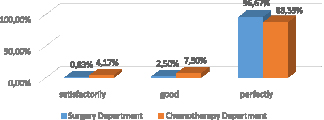
Fig. 2. Are you satisfied with the courtesy and attention of doctors in the appointment of research and treatment?

Fig. 3. Are you satisfied with the courtesy and attention of a nurse or other hospital care staff?
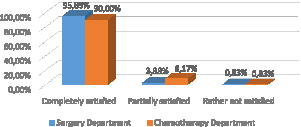
Fig. 4. Are you satisfied with your meals during your hospital stay?
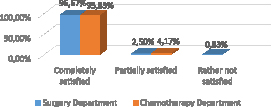
Fig. 5. Are you satisfied with the quality of cleaning, lighting rooms, temperature?
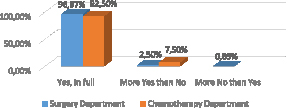
Fig. 6. Are you satisfied with the conditions of medical care?
To the following question: Are you satisfied with conditions in which medical assistance is rendered? The answers indicate that only 96.67 % of the respondents of the surgical and 92.5 % of the chemotherapeutic departments are fully satisfied with the conditions of medical assistance [fig. 6].
To the question: How long did you have to wait before the admission department doctor began to examine from the moment of admission to the in-patient hospital? 92.5 % of the surgical and 91.67 % of the chemotherapy department respondents answered that the doctor examination started at the time of admission to the hospital. And only 5.83 % and 4.17 % of the respondents’ answered they had to wait for an examination for up to 30 minutes [fig. 7].
Respondents answered the question: Are you satisfied, in general, with the medical assistance rendered to you in the in-patient hospital? Patients are completely satisfied with the medical assistance rendered in the in-patient hospital.
To the question: How much time passed from your receipt of a referral to in-patient hospital to the time of hospitalization (for patients admitted for inpatient treatment in a planned manner)? 95.83 % surgical respondents and 96.67 % in chemotherapeutical departments answered: up to 3 days and only 3.33 % had to wait for up to 10 days [fig. 8].
To the question: Are you satisfied with the qualification level (professionalism) of your attending physician? The respondents’ answers indicate complete satisfaction with the level of qualification (professionalism) of the attending physician.
And to the question: Would you recommend this medical institution to your friends and relatives? 100 % of the respondents answered ‘Yes’.
At the end of the survey, patients were asked to rate the quality of medical assistance using a five-point scale – 96.67 % of surveyed surgical and 93.33 % chemotherapy department respondents rated it by 5 points, 4 points evaluation refers to 3.33 % of surgical patients and 6.67 % – to chemotherapy patients [fig. 9].
Making a general conclusion on the results of the questionnaire at Unitary Enterprise based on the Right of Economic Management ‘AROD’, there were no comments from the patients, there are wishes and thanks to the medical staff of the clinic for courtesy, attentiveness, polite manners and for the quality of medical assistance.
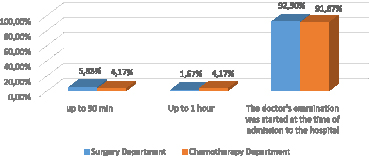
Fig. 7. How long did you wait before the doctor has began the examination in the emergency room from the moment of admission to the hospital?
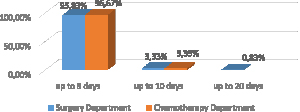
Fig. 8. How much time has passed from receiving your referral to the hospital to the moment of hospitalization (for patients admitted to hospital treatment in a planned manner)?
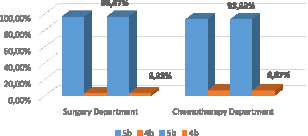
Fig. 9. Evaluate the quality of medical assistance rendered to you using the five degree scale
The evaluation of the reliability of the results obtained was carried out using the reliability coefficient (t). Consumer satisfaction indices were considered statistically veracious, as they exceeded their error by more than 2 times (t > 2).
Thus, the analysis of patient satisfaction of the oncological dispensary revealed the following:
In general, patients are satisfied with the quality of medical assistance in the oncological dispensary, but there is still a need for improvement in such indices as rationalization and improvement of the convenience of a preliminary examination, execution of source documentation, communication with the consumer and attention to relatives/accompanying persons. Waiting time and promptness of service were evaluated by patients as very good.
It should be noted that, as such, the implementation of a quality management system does not have an endpoint; it is an iterative process of continuous self-improvement and perfection. Thus, the Unitary Enterprise based on the Right of Economic Management ‘AROD’, having started the process of implementing and maintaining the QMS, is still on the path to improving the management system of the medical institution, the quality of services, and relationships with customers and staff.

